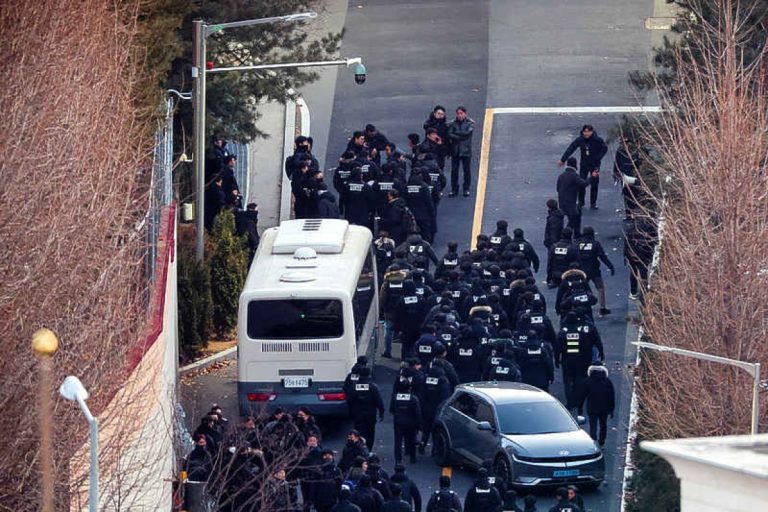Highlights
- Yoon agreed to accompany investigators to prevent “bloodshed.”
- Authorities are investigating the insurrection following Yoon’s martial law decree.
- Yoon and his lawyers argue that the attempts to arrest him are illegal.
- The top court is separately deliberating on Yoon’s impeachment.
SEOUL, Jan 15 (Reuters) – South Korean authorities arrested impeached President Yoon Suk Yeol on Wednesday on charges of insurrection. The embattled leader stated that he agreed to cooperate with what he described as an illegal investigation to prevent “bloodshed.”
Yoon’s arrest marks the first time an incumbent president has been detained in South Korea. This dramatic turn of events adds to the already turbulent political climate in one of Asia’s most dynamic democracies, despite the country’s history of prosecuting and imprisoning former leaders.
Since lawmakers voted to remove him following his brief declaration of martial law on December 3, Yoon has remained at his hillside residence, protected by a small army of personal security that previously thwarted an arrest attempt.
In a defiant move, Yoon stated that he surrendered for questioning to prevent any violence, after over 3,000 police officers marched on his residence early Wednesday morning in an effort to arrest him.
“I chose to cooperate with the CIO’s investigation—despite it being unlawful—to prevent unnecessary bloodshed,” Yoon said in a statement, referring to the Corruption Investigation Office for High-ranking Officials (CIO), which is leading the probe.
Yoon was later seen leaving his residence in a motorcade and arriving at the CIO offices. Authorities now have 48 hours to question Yoon, after which they must either obtain a warrant to detain him for up to 20 days or release him.
Yoon’s lawyers argue that the arrest warrant is illegal, claiming it was issued by a court outside the proper jurisdiction and that the investigation team lacks the legal authority to pursue the case.
Yoon’s declaration of martial law shocked South Koreans, destabilized Asia’s fourth-largest economy, and sparked an unprecedented political crisis in one of Washington’s key security allies in the region. On December 14, lawmakers voted to impeach him and remove him from office.
Meanwhile, the Constitutional Court is considering whether to uphold the impeachment and permanently remove Yoon from office or to reinstate his presidential powers.
Supporters of Yoon
The latest arrest attempt, which began before dawn, captivated the nation as hundreds of thousands watched live feeds showing police arriving in busloads near the presidential residence. They pushed past Yoon’s supporters and made their way toward the gates of the compound, carrying ladders and wire cutters.
As local news outlets reported that Yoon’s detention was imminent, minor clashes broke out between pro-Yoon protesters and police near the residence, according to a Reuters witness. Large crowds of protesters had gathered before dawn in sub-zero temperatures, some wrapped in foil blankets and others waving flags with “Stop the Steal” slogans, referring to Yoon’s unproven claims of election fraud—one of the reasons he cited for his brief martial law declaration.
Some of Yoon’s supporters have drawn comparisons between his situation and that of U.S. President-elect Donald Trump, who also claimed voter fraud contributed to his 2020 election loss but later made a remarkable political comeback. “It is very sad to see our country falling apart,” said Kim Woo-sub, a 70-year-old retiree protesting Yoon’s arrest. “I still have high expectations for Trump to support our president. Election fraud is something they have in common, but also, the U.S. needs South Korea to fight China,” he added. Despite polls showing a majority of South Koreans disapprove of Yoon’s martial law declaration and support his impeachment, the political standoff has revitalized his supporters. In recent weeks, his People Power Party (PPP) has gained momentum, with the latest Realmeter poll showing PPP support at 40.8%, compared to 42.2% for the main opposition Democratic Party, a margin that has narrowed from a 10.8% gap the previous week.

